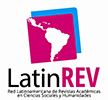Linguistic knowledge of graduates of the Literature course at the State University of Maranhão: a study with students from the Itapecuru Mirim Campus
ARK:
https://n2t.net/ark:/35231/pergaminho.v2n2.54Keywords:
Linguistic knowledge, ENADE, Digital technologiesAbstract
Linguistic knowledge is very important for contemporary society, such knowledge enables individuals to develop skills such as reading, writing and speaking in their daily social practices. In textual linguistics, the text is understood as a unit of meaning that becomes evident in several ways, and one of these is the understanding that the reader must have of the text's meanings. In entrance exams and other assessments, this category is widely explored, therefore, individuals' prior experiences and knowledge become extremely relevant. That said, in this work we sought to identify the linguistic skills of students completing the Literature course at the State University of Maranhão - Itapecuru Mirim Campus, using as techniques bibliographical research and participant observation with author identification in a virtual environment. As a data collection instrument, questionnaires prepared using the technological tool Google Forms were applied in the 7th and 8th periods of the Language Course, with selected questions from the National Student Performance Exam – ENADE/2021 as a backdrop. As a theoretical-methodological contribution, we sought authors such as: Koch (2003); Bechara (2006); Geraldi (2006); Moran (2015;); Kastro e.al. (2013); Monteiro & Santos (2019, among others. It is important to highlight that this study may reveal data that can diagnose the linguistic basis of the aforementioned students. Analysis of the questionnaires demonstrated that there was low student adherence in the questionnaire application phase, but despite the low number of participants, it was possible to evaluate the performance of students in the linguistic questionnaire extracted from the Enade test.
Downloads
References
BRASIL. Instituto Nacional de Estudos e Pesquisas Educacionais Anísio Teixeira. ENADE. Disponível em: http://portal.inep.gov.br/enade. Acesso: 15/10/2021.
BECHARA, E. Ensino de gramática. Opressão? Liberdade? 12.ed. São Paulo: Ática, 2006.
FONSECA, J. J. S. Metodologia da pesquisa científica. Fortaleza: UEC, 2002. Apostila.
GATTI, Bernardete Angelina. A Construção da Pesquisa em Educação no Brasil. Brasília: Plano Editora, 2002.
GERALDI, J.W. O texto na sala de aula. 4. Ed. São Paulo: Ática, 2006.
KASTRO, Purcell et al. (2013). Como os professores estão usando a tecnologia em casa e no Cassroms Washigton, DC: Internet & American Life Project do Pew Resead.
KOCH, Ingedore Villaça. Desvendando os segredos do texto. 2. Ed. São Paulo: Cortez, 2003.
KOCH, I. V. As diferentes concepções de linguagem. In: A interação pela linguagem. 9. Ed. São Paulo: Contexto, 2004.
MONTEIRO, R.L.S & Santos D.S. (2019) A utilização da ferramenta google forms como instrumento de avaliação do ensino na escola superior de guerra. Revista Carioca de Ciência, Tecnologia e Educação (online). 4(.2):28-38. Acesso em 09 de julho d 2020. Disponível em: https://recite.unicarioca.edu.br/rccte/index.php/rccte/article/view/72/106.
MORAN J. (2015). Mudando a educação com metodologias ativas. Coleção Mídias Contemporâneas. Convergências Midiáticas, Educação e Cidadania: aproximações jovens. Vol. II. Carlos Alberto de Souza e Ofelia Elisa Torres Morales (orgs.). PG: Foca Foto-PROEX/UEPG.
Downloads
Published
How to Cite
Issue
Section
License
Copyright (c) 2023 Alberto Henrique Costa de Castro, Vanda Cristina da Fonseca Magalhães

This work is licensed under a Creative Commons Attribution-NonCommercial 4.0 International License.


